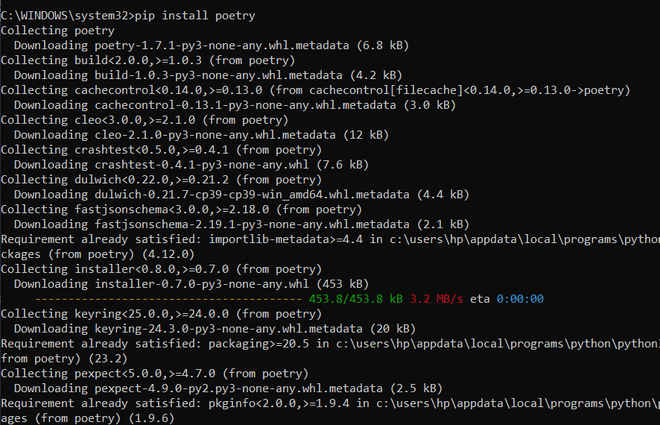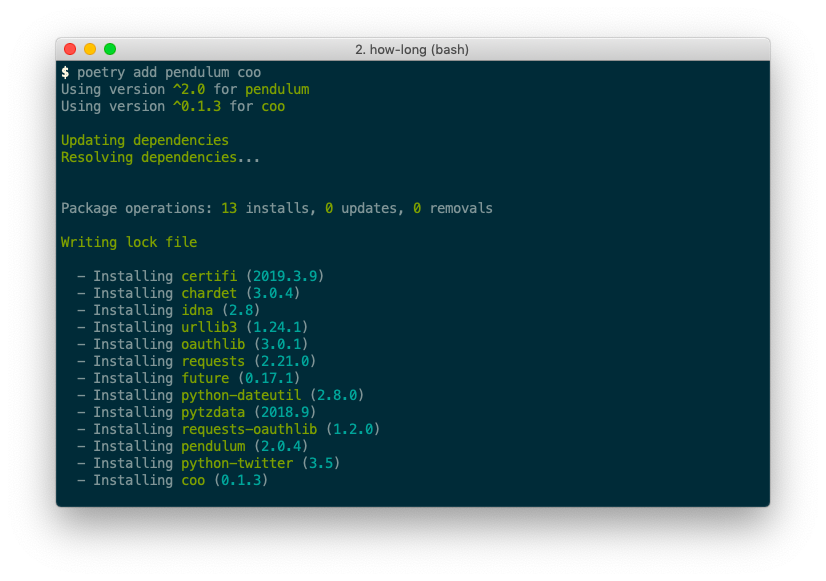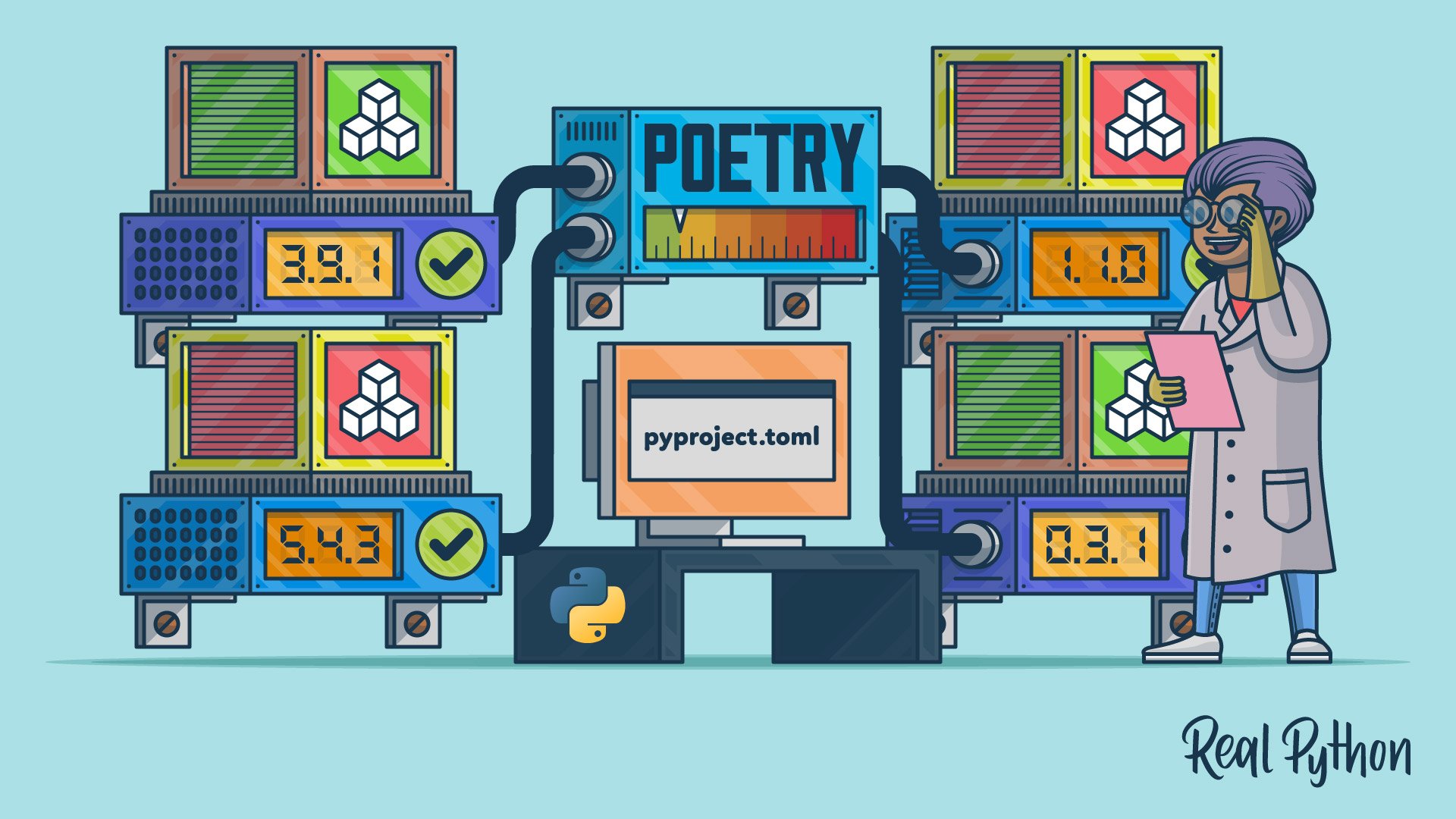
Anyone who's dealt with Python packaging hell knows exactly why Poetry exists. Before Poetry, managing Python dependencies was a clusterfuck of setup.py, requirements.txt, setup.cfg, MANIFEST.in, and whatever other random config files your project accumulated. Poetry fixes this by putting everything in one file: pyproject.toml.
The Problem: pip Doesn't Resolve Dependencies
pip's approach to dependency resolution is basically "install everything and hope for the best." It doesn't check if package A version 2.0 is compatible with package B version 1.5 - it just installs both and lets your runtime crashes tell you there's a problem. I've wasted entire days tracking down version conflicts that pip silently created.
Poetry's dependency resolver actually works. It figures out which versions are compatible before installing anything. When there are conflicts, it tells you exactly what's wrong instead of just dying silently like pip. No more "works on my machine" bullshit.
Performance Reality Check
Poetry can be painfully slow on large projects with complex dependency trees. The resolver downloads entire packages to read metadata, which sucks on slow connections. But at least it works correctly.
Benchmarks show Poetry beats pipenv for most operations (package removal: 3.5s vs pipenv's 6.2s), but pipenv is faster for full installs. pipenv also has cache corruption issues that'll make you want to throw your laptop out the window.
Virtual Environment Sanity
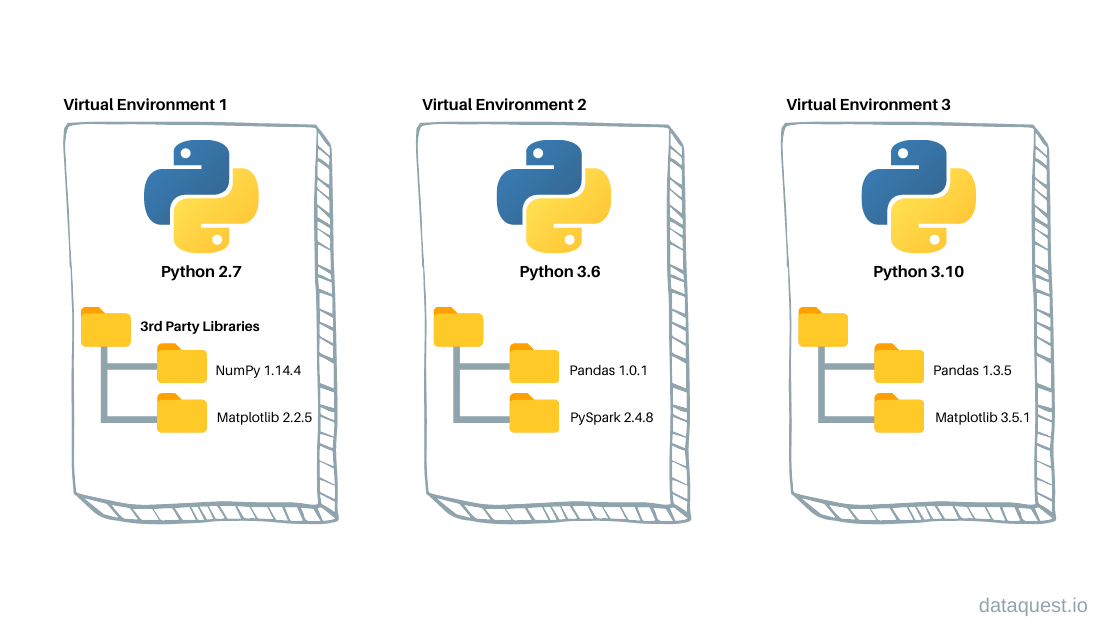
Poetry automatically creates virtual environments so you don't have to remember to activate them. No more accidentally installing packages globally and breaking your system Python. It handles this automatically and puts environments in sensible locations (unlike conda which scatters them across your drive).
Pro tip: Never install Poetry inside your project's virtual environment. It'll conflict with itself and you'll spend 2 hours debugging it. Use pipx or your system package manager.
The pyproject.toml Revolution
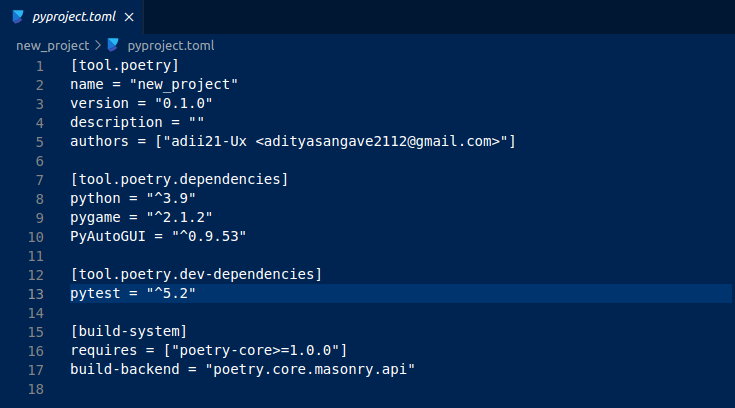
Everything goes in pyproject.toml now - dependencies, build settings, tool configurations. No more juggling 5 different config files. Poetry adopted this standard early and it's become the norm. Even setuptools supports it now, though their implementation is still clunky.
Poetry requires Python 3.9+ and works on Linux, macOS, and Windows, though Windows users occasionally hit path length limits that'll completely fuck your day.

